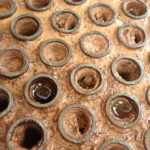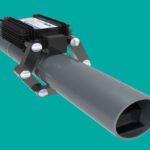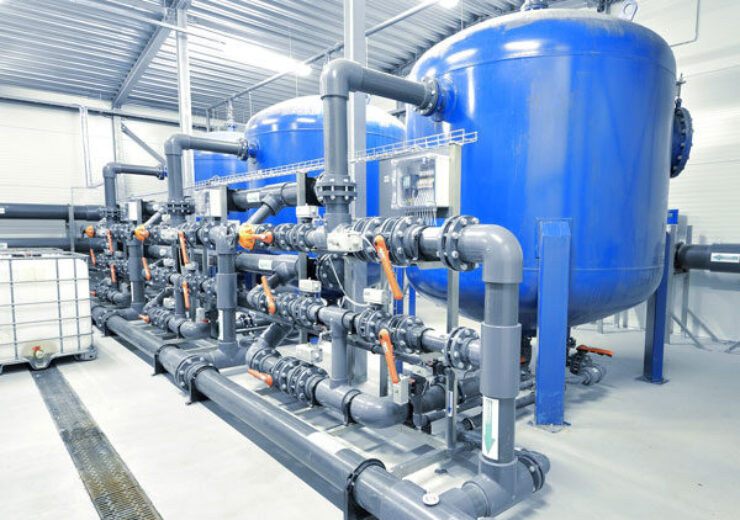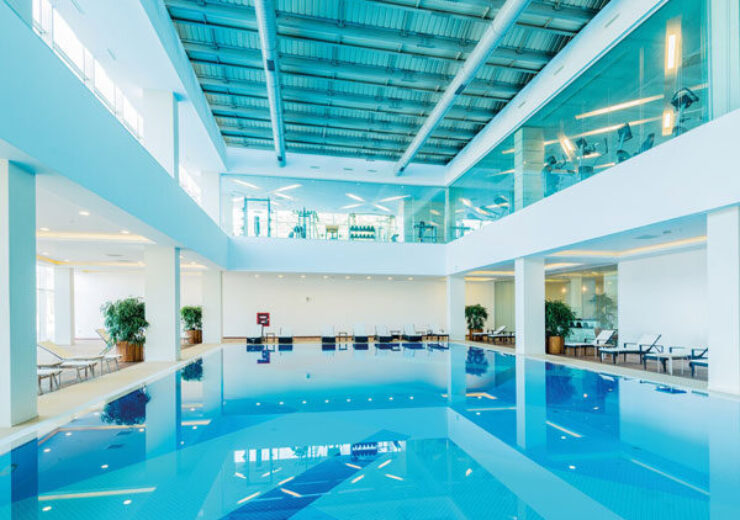Water hardness and disadvantages of resin hardness

Disadvantages of using resin hardener
whater hardness
Water hardness is used to remove water hardness. The amount of water hardness is measured based on the amount of solutes such as calcium, magnesium, iron and manganese in milligrams per liter based on calcium carbonate. In this regard, soft water has a hardness below 50 mg/liter based on calcium carbonate, which is recommended in facility standards such as Ashri and Carrier, that the hardness of feed water in facility systems is within this range.
If the water hardness is between 51 and 100 mg/liter based on calcium carbonate, it is called soft (medium) water. If the water hardness is between 101 and 150 mg/liter based on calcium carbonate, it is called hard (low) water. If the water hardness is between 151 and 200 mg/liter based on calcium carbonate, it is called hard (medium) water. If the water hardness is between 201 and 300 mg/liter based on calcium carbonate, it is called hard water, and if the water hardness is more than 300 mg/liter based on calcium carbonate, it is called very hard water.
The hardness of Iran’s water is on average in the hard and very hard scale, that’s why the problems of chalk and limestone sediments are very visible.
Resin hardener – polyphosphate filter
The hardness of water in the heating, cooling and drinking water systems of facilities causes the formation of deposits in pipes, pumps, heat exchangers, boilers, etc., which causes disruption in facilities by reducing heat transfer, corrosion and clogging. For this reason, it is necessary to remove the hardness of the water. A common and traditional solution is to use resin sediment traps that separate calcium and magnesium salts from water. There are different types of descaling agents, but cationic hardeners are popular in the utility industry, which have sodium chemical resins that replace calcium and magnesium salts with sodium when hard water passes over the resin bed. Resins are gradually saturated with hard solutes and lose the efficiency of absorbing hard solutes. Therefore, by using 10% diluted salt water with resin washing and baking operations, the resins are restored and returned to their original state.
The disadvantages of resin sediment traps are as follows:
1- Resin hardeners take up space in engine rooms. Due to the limitation of architectural spaces and the increase in the price of land, builders tend to consider the minimum space for engine houses. In addition to occupying part of the space, resin hardeners also require service and maintenance space. In addition to this, transporting and storing salt to restore the hardness of resin binders also takes up space.
2- It is not possible to use resin hardeners at an inlet water pressure of more than 4 bar. In high buildings, where the cooling tower is located on the roof, another part of the construction space in the engine room should be allocated to soft water tanks and pumps under pressure.
3- Due to the limited water resources of the country and the widespread water crisis, resin sediment traps have the most water loss during reclamation and reclamation. On average, 10-20% of the water used in the facilities is wasted in resin hardeners and it is the biggest factor of groundwater salinity. The water discharged from the resin sediment traps has very large amounts of water hardness salts such as calcium, magnesium and sodium, which cause the greatest damage to the environment and water resources. By removing the resin hardener, 10% water consumption will be saved in government organizations and commercial and residential buildings.
4- Resin sediment traps must be overhauled or replaced every few years due to decay and corrosion. Soft water increases the rate of corrosion, the intuitive reason of which is the corrosion of the resin hardening chamber. Also, resins wear out over time and need to be replaced. Considering the high hardness of water in Iran, the time to change resins is very short.
5- Resin hardeners or ion exchange hardeners cause water salinity and exchange sodium salt with calcium and magnesium salts, so it is not drinkable and harmful to health. Resin hardeners cannot be used in sanitary hot and cold water circuits. One of the reasons why manufacturers are forced to periodically acid wash coil sources with hot water plate converters is the ban on installing resin hardeners in drinking water circuits.
6- One of the most important disadvantages of resin hardeners or polyphosphate filters in the drinking water circuit is that the output water of the hardener is very soft and does not contain calcium and magnesium salts. Soft water is highly corrosive, which causes heavy metals to separate from the inner surfaces of metal pipes and enter drinking water. The exchangers of thermal packages are mainly made of copper, also, if the corrosion in galvanizing with soft water increases, the amount of heavy metals will be significant.
7- Soft water does not have the ability to descale, so in all systems that work with resin hardeners, they need acid washing after some time. In other words, resin hardener only reduces the sedimentation rate and cannot open the old sediments and descale them in the system.




